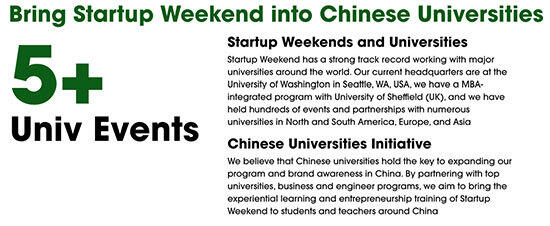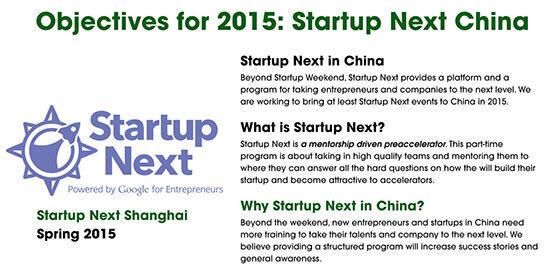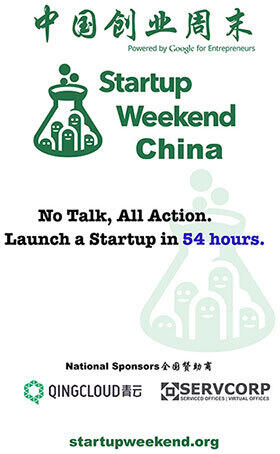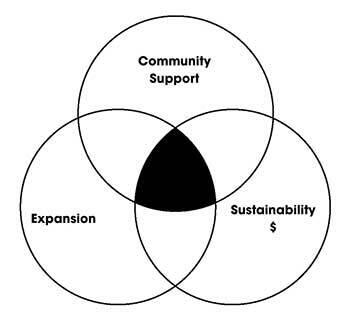
新年快乐! 新年快樂! Happy Chinese New Year. With Chinese Spring Festival starting, it felt like a good time to where we will be going in 2015 with UP Global in China, compared with where we have beee from 2010 to 2014.
Let’s first look at my role with UP Global in China and how all this craziness got started. After we will then examine our key initiatives, programs and communities for 2015.
Prove Your Existence: UP Global in China in 2014
I was brought on as “Community Development Manager” for UP Global in China in September 2014 with the broad goals of community growth, evangelism and business development.
It all boiled down to the ability to prove: 1. if our programs fit (or could be adpated to fit in China) and 2. if initial money could be raised to reach some level of sustainability.
The short answer to both these questions is “Yes.”
Yes, our programs do fit in China. While there have been some setbacks and community challenges, I firmly believe that our UP Global programs can be adapted to flourish in China, and we’re actively working to make this more so each and every day.
Yes, we can reach sustainability in China. With the signing of our first, two China national sponsors in January 2015, we are on the way to being sustainable and self-suffient in China. Thanks to ServCorp China and QingCloud for believing in us and our vision of providing greater access to entrepreneurship in China.
With the basic proof for our existence in China proven, let’s turn towards specific 2015 pushes and objectives.
UP Global in Greater China: Core Programs Push

In nearly every statistical and qualitiative way, China is a big opportunity for UP Global. In fact, the same could be said for many of its neighbors like Japan, Korea and Southest Asia. All contain active entrepreneurial active and potential corporate partners.
Facts:
- China has a huge population with nearly 75% of its people of working age (aged 15-64), according to the World Bank.
- It’s the first or second large economy in the world.
- It’s got over 350 cities with a population over 100,000 and at least 60 some cities with a population over 1 million.
- The Chinese are culturally very commercial and entrepreneurial.
We are opimistic about our prospects in China, and we are prepared to adapt to Chinese characteristics, culture, language, and administrative hurtles.
Startup Weekend: Expanding Geographically
Historically Startup Weekend in China has taken place China’s first and second tier cities like Beijing, Shanghai, Hong Kong, Shenzhen and Guangzhou. Some speculated that our programs might only best fit in these 5-6 main cities. But 2013 and 2014 proved these artificial limits wrong and saw an expansion to Xiamen, Chengdu and even Qingdao, all important though minor Chinese cities.
For 2015 we expect a fairly robust geographical expansion. We’ve already held a first time event in Xi’an in central China, and cities like Ningbo, Hangzhou, and Tianjin are already in the final preparations for Startup Weekends in Spring.
In 2014, we reached 9 cities, and we are scheduled to reach at least 18 cities in 2015.
We are also helping new and old organizers succeed by providing better metrics and techniques for startup weekend organizers in China to recruit the right participants.
In terms of event numbers, we held 14 startup weekend events in 2014. For 2015, we are aiming for over 30 events. This means that with events averaging about 100 attendees, we expect to have created a community of over 3000 startup weekend entrepreneurs this year. Since most of the events are new organizers, we are also creating a new volunteer team of organizers and faciliators for the future.
Startup Weekend: Editions

Like other regions for UP Global, we are also pushing for more themed or Startup Weekend “Editions” in 2015. This is especially true in more mature cities like Beijing, Hong Kong, Shanghai and Chengdu.
A Startup Weekend Edition is what we call events with a theme. Usually themed events focus their support on an industry (education, health, fashion, etc.) or demographic (Women, Youth, etc.).
The logic is that that we want to apply the Startup Weekend model and experience to new industries. Edition events increase the diversity of the community by pulling in new audiences, organizers, stakeholders, and sponsors with new areas of expertise.
In Feb 2015 we were happy to rock our first startup weekend education in Hong Kong. It gathered a new group of educators and entrepreneurs around creating not only a business impact but an educational one too. It was pretty amazing and we are happy to see this model moving to Beijing in around May 2015.
Equally imspiring is to see a level of social entrepreneurship in China. Startup Weekend is finally returning to Hangzhou in 2015 with a “ChangeMaker” edition. The initative will focus on social problems and how we might build businesses to improve our local society. It’s also run by an amazing group of foreign students at Zhejiang University’s School of Management.
Out of this world is definitely on the agenda for Startup Weekend SPACE in Shanghai in April.
Due to the large number of first or second time startup weekend organizer teams, we don’t expect a significant percentage of themed events for now in China. Most new cities are aiming to first fire up and excite their communities via classic startup weekends.
Long-term there are lot of interesting opportunities for themed editions in China. Most Chinese cities have at least 2-4 specialty industires where startup weekend format and industry experts might meet to bring innovation to their industrial focus. This is especially true for Maker and ED Tech among others.
Startup Weekend University in China

Working with universities in China has not been without setbacks in 2014. While there is a huge potential in university events, administrative sensitivity have caused a few university e events to fail to pan out.
In spite of these initial challenges, for 2015, we already have three university events scheduled, including Zhejiang University (Hangzhou), Hong Kong University and The University of Nottingham (Ningbo, China).
We are hopeful that these initial universities will provide real examples to create less resistence in working with other universities around China, especially programs looking for more experiential learning, entrepreneurship and an international feel.
Beyond the Weekend: Startup Next in China Shanghai

Startup Next is our mentorship-driven program to help pre-seed stage startups get into top accelerators or raise a said round. It’s gone through a couple program shifts, but the current program (mentorship driven), partnership approach and focusing on best ecosystems has led to a ton of success stories for Next teams in recent months.
For China, we are excited to be running our first Startup Next program in Shanghai in spring 2015 with Todd Embley and the team at Chinaccelerator.
The goal of the program is to take teams with some basic traction, product, or other positives in their favor and run them through a focused mentorship bootcamp. The end goal is to improve their ability to enter top accelerators or raise a seed round. OR in the mantra of failing fast, through the program teams are able to determine the unsustainablity of their business and kill it.
China has a growing tech startup scene, but major gaps in basic startup knowledge for teams and a fragmented startup community and mentorship network have led to a pretty high failure rate. Programs like startup weekend and startup digest are helping to solve parts of these difficulties, but we feel Startup Next via a regional approach will generate many positive for teams and ecosystems as a whole.
Ultimately Startup Next like other programs aims to provide a special place for entrepreneurs to level up their startup and startup skills.
Unlike Startup Weekend, we don’t expect to bring Startup Next to all of China’s major cities and still maintain quality and high percentage of success. Instead, we look to bring this program to cities where there is a strong startup ecosystems like Beijing, Hong Kong or Chengdu.
Legal Challenges for NGOs in China
China doesn’t rank particularly high for its ease of doing business. It’s a challenge to start and run a normal business in China. These challenges and administrative hurtles are even higher for an NGO in China like UP Global.
Fortunately, we have a lot of amazing partners in China and around the world, so we expect 2015 to also be the year we open an official entity in China.
Sustainability for UP Global in China

Like our other regional offices in Europe, Brazil, Malaysia, and Latin America, our goal in China is to function as the main point of contact and pusher for our programs in the region. This is already the case in China, and we are working to grow our community and programs.
With solid community growth, our other big focus is to become a sustainable business. As such 2015 will be driven also by business development opportunities.
In January 2015, we secured our first local funding and are happy to weleome QingCloud and ServCorp China as China Sponsors.
Headquartered in Beijing, QingCloud is a young startup which provides cloud computing to entreprise and startups.
Headquartered in Australia, ServCorp provides physical and vertical business office services for clients around the world.
In order to reach long-term sustainablility, Ww are actively working to develop more relationships with other local businesses, foundations and government agencies. Their support will help us to bring our programs and entrepreneurship opportunities to more people around Greater China.
Conclusions: Community Support in the Year of the Goat for UP Global in China.

Ultimately the goal of UP Global revolves around the vision of creating greater access to entrepreneurship for local communities. We do this by helping local volunteers and leaders via our various programs and activities.
While our strategy might change, we are resolute in these main focuses in China. We are determined to benchmark this year on these main objectives:
- 1: Sustainability
- 2: Expansion
- 3: Community Support

Above we have gone into detail about our plans and active projects driving our sustainablility and our community growth. We will literally be flying around China and Asia in pursuit of these two main objectives.
Ultimately, there is a third, underlying on-going pursuit that keeps us focused, and that is community support. Community support is the great multiplier for everything we do. We support communities who then create a ripple of greater impact.
Traditionally, our programs were first adopted and promoted in China by foreigners and English-speaking Chinese. While this group will continue to be a critical part of our communities, these last few months have seen significant strides towards greater localization.
We speak, write and share more in Chinese than ever before. There are more Chinese language and Chinese people involved on all levels. Personally I’ve facilitated at a few all-Chinese events in third and fourth tier cities. An increasing number of our organizers and community leaders don’t speak English well. While English speaking is prefered, we have significantly lowered the barrier of entry since most major communication is now handled in Chinese.
By tracking and controlling event more closely, our promotion methods in China have improved, leading to stronger turnouts. WeChat remains the strongest “glue” across all events, organizers and partcipants in China. We now have a UP Global WeChat Channel too.
In order to provide greater community support for Chinese speakers, we have translated all of our startup weekend organizer docs into Chinese. To improve access issues, we are working to relaunch a Chinese-language website inside of China.
All of these efforts are aimed at creating long-term community support for our programs.
So while we expect to see our programs grow geographically and numerically and also are confident about reaching financial sustainability, ultimately our mission meets at the nexus of providing community support for entrepreneurs leading their startup communities.
As we say, UP Global is a nonprofit aimed at helping local volunteers amplify their efforts to bring more people to entrepreneurship and startup communities, and in turn create more successful startup companies.
Happy Chinese New Year from China. We wish you all a very healthy and fortunate year of the goat.
Interested? Questions? Contact me
If you wish to learn more about our China Initiative, please check out our Chinese site at china.startupweekend.org. No VPN? Try startupweekend.gitcafe.com.
If you have any direct questions or are interested in attending or organizing, contact me directly at mark.koester@startupweekend.org or on WeChat at markwkoester.
